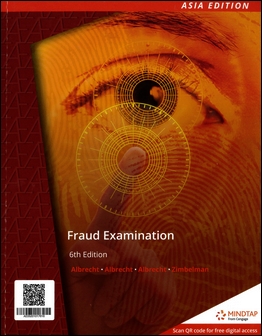書籍分類

Fraud Examination 6/e
作者:W. Steve Albrecht, Chad O. Albrecht, Conan C. Albrecht, Mark F. Zimbelman
原價:NT$ 1,700
內容介紹 本書特色 目錄 作者介紹
- Description
Equip your students with the skills necessary to identify, detect, investigate and prevent all types of fraud with Albrecht/Albrecht/Albrecht/Zimbelman's FRAUD EXAMINATION, 6E. This popular text closely examines the nature of fraud using memorable business examples and captivating cases of actual fraud, including recent developments in cyber fraud. Students explore how experts use technology to both commit and detect fraud. Students also examine today's legal options for victims of fraud. Significant discussion on forensic analysis expands students' understanding of the field, while new, timely examples, problems and exercises reinforce concepts with meaningful practical applications. In addition, proven learning features help students focus on the most important information in fraud today as they prepare to make a difference in contemporary business.
分類位置:
商管 > 會計 > 鑑識會計與舞弊查核


